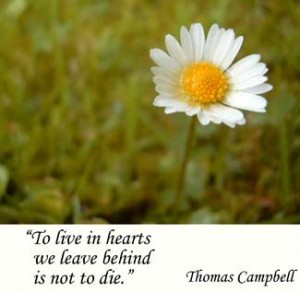College Students Coping with Grief
Grief and Loss
Coping with Grief and Loss
While Going Back to College
Most people who begin their grief journey want straight facts. They want to know such things as what to expect, how long will the grief and loss can last, etc. College students are no exception. However, college students are in a unique niche of No- Longer-a-Teenager but not quite considered an adult as they are not melded into the working world. Should you need it, here are some quick tips to print off and give to a grieving college student.
1. Most people grieve anywhere from three to seven years. The five stages of grief can last approximately three years. Some people say that the second year of grief is harder than the first year of grief, but this is not always the case.
2. You may find yourself crying on and off for the next three years. Don’t try to fight the tears, rather let them flow. Tears are your body’s way of helping you cope with grief. Tears actually release chemicals into your system that help you feel better.
3. Even if you don’t feel like it, try to eat three meals a day. They don’t have to be huge and they should be “healthy for you” food. Try to limit the amount of sugar and empty calories you take into your body. Grieving is probably the hardest job you will every do. It is demanding physically, mentally and emotionally. Because of this high demand, your body needs energy that comes from solid healthy food. Cut out the caffeine if possible, limit the amount of alcohol you take into your system and drink as much water as you can get down a day. Think of this as if you were training for a really big physical event. (Like the Olympics!)
4. Talk, talk and talk some more. Typically, you are going to find that people want to talk to you and listen to you for the first few weeks and months. Then most people don’t know what to say, or don’t want to listen anymore–all for a host of reasons. You probably will get to the point where people ask you how you are doing and you will say ”I am fine”. Try to find people to talk to about your loss who are willing to listen. Talking does you a world of good. Journaling is also a great tool. One of the services offered at Beyond Indigo contains a private journal no one can access except you.
5. Be aware that you will have to be the one educating people on how to help you while you are grieving. This is ironic since you are the one that needs the support, not the other way around but, nevertheless, this tends to be a fact in our society. We are not socialized to talk about death. We are socialized to talk about boyfriends, our future children, weddings, etc. but not death. Therefore, people have no clue what to say. They mean well and are trying, but they may say the things that are not helpful to you. It is okay to say something like, “Listen, I know you mean well and are trying to help, but telling me my father is in heaven doesn’t make me feel better. What makes me feel better is______. (fill in the blank with how you feel, or what you would like to hear.)
6. Taking care of you during school will be a big task. Your life now is very different. You know this, however, other people may not. They may not understand how your world has changed dramatically. Focusing on schoolwork might be more difficult. Make sure to give yourself permission to change your study habits if you need to. It is okay if you don’t socialize like you did before. Figure out what little things help you during the day, such as a soothing bath at night, or listening to special music. Make sure to tell your professors of your loss. Especially be aware that you might need to explain to them that you might have trouble concentrating. There might be some arrangement that you can make to take tests on a different day if the scheduled day of testing proves to be too emotionally difficult for you. Teachers will understand if you tell them ahead of time.
7. It never hurts to find a therapist and receive some grief counseling on campus (or in town) who can be there to help monitor you through this time. You’ll need a therapist who will listen and give you ideas to put in your “tool box” to help you communicate with peers, to help you adjust to your family’s new roles with your loved one gone and to help you get through this year of school. Though you may feel you want a therapist that just listens and says, “Right, okay then, we will see you next week”, in the long run this will not be quite as helpful as a therapist that help you develop communication skills and action plans. If you go to a therapist and find that you do not “bond” with him/her or feel comfortable in his/her presence it is totally legit to terminate your sessions and seek another therapist that will feel like a comfortable “fit”.
8. If you are not sleeping at night you need to go see the doctor on campus or in town to help you sleep. Sleep is hugely important to keep up your strength.
Remember to take care of “you” first and then school and everything else will become easier to manage. Good luck on your new learning experience!
Are you looking for others with whom you can relate? Visit the Beyond Indigo forums to connect with others who are on their grief journeys.
© 2010 Kelasan, Inc.
























